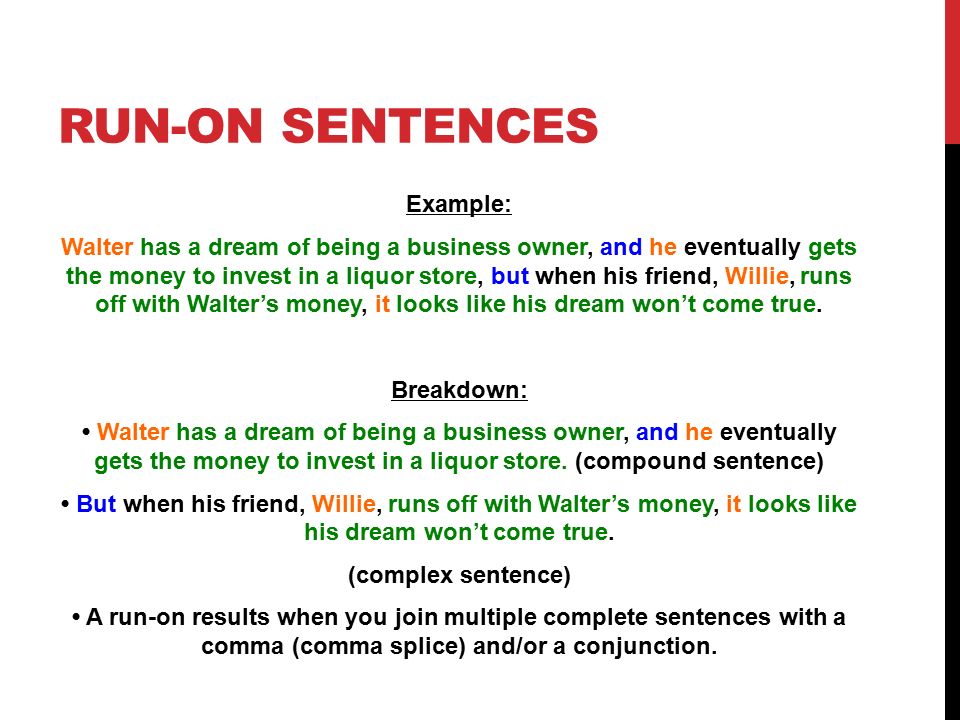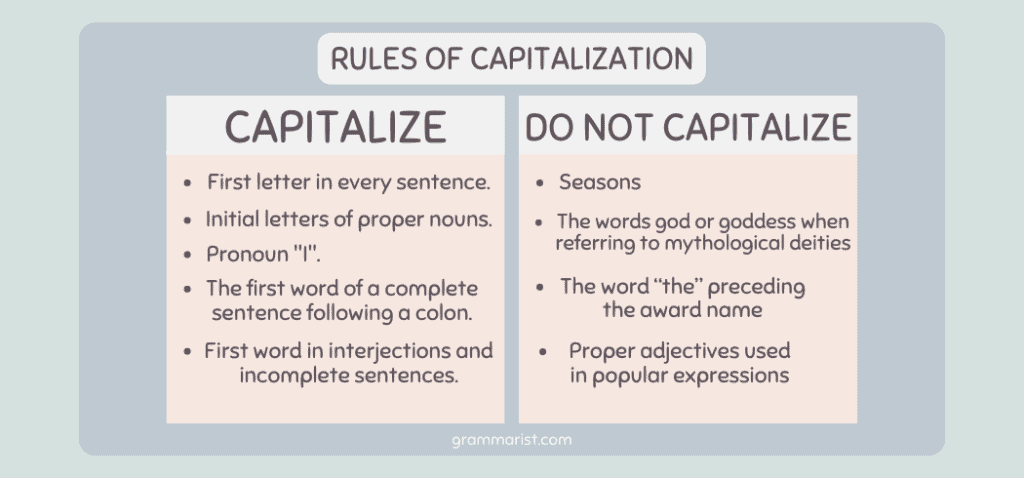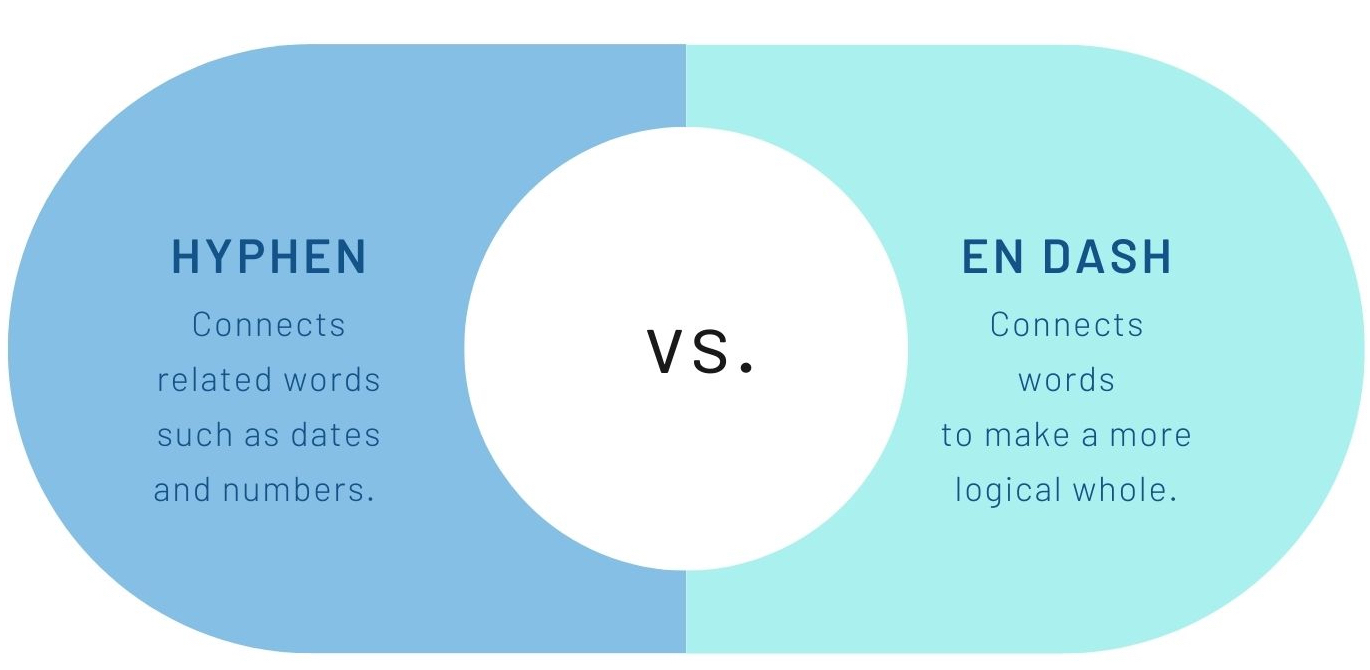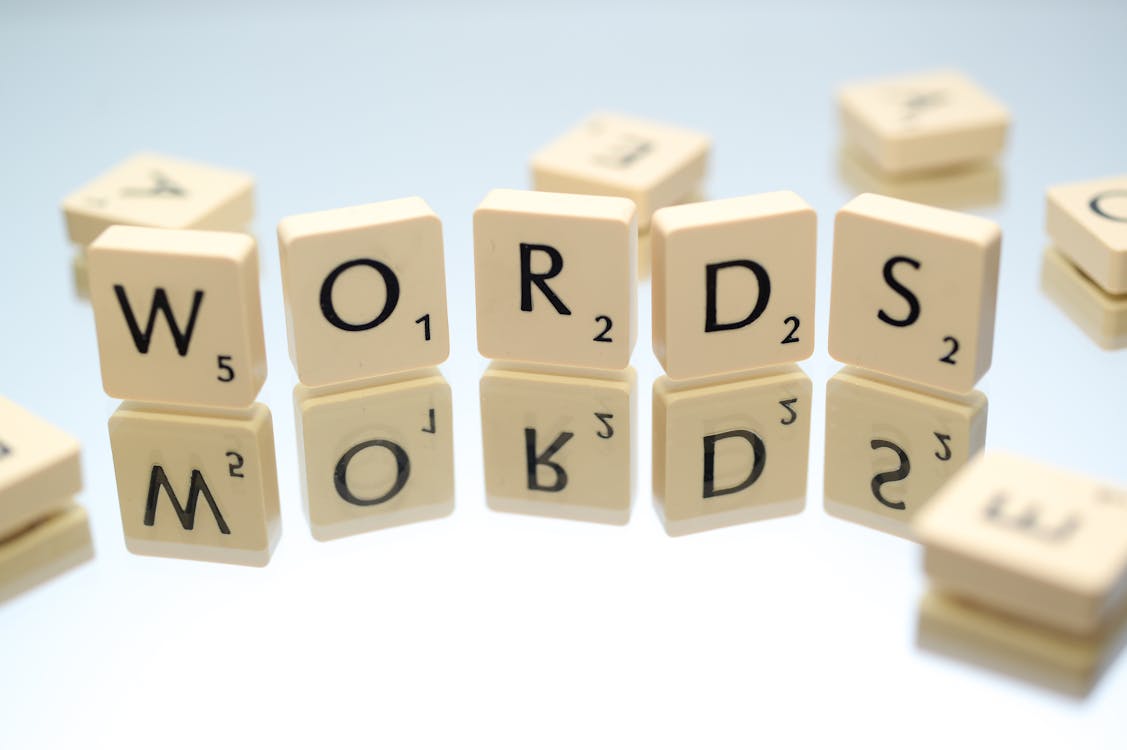
Common Mistakes In Writing & How To Fix Them
Run On Sentences

"This occurs when two complete sentences are connectected improperly." (Walden University) You can fix this by adding a punctuation mark between the sentences: a semi-colon or a period, or add a connector.
Capitalisation & Punctuation Errors
There are various mistakes students make regarding capitalisation & punction errors. One example is capitalising only the first and last letters of an abbreviation. (Grammarist)
Though these examples can fall in different categories, some mistakes included were: using apostrphes for plurals and using punctuation as a means to make a run-on sentence.
50% of students agreed with the following statement: Do you use apostrophes for plurals?

Avoid run-on sentences, do not use capitalisation for plural nouns and if needed, find the use of every punctuation mark to avoid confusion.

Lack of Vocabulary

According to the survey, many students strongly agree; 70.6% students answered "yes" to the following question: Do you often repeat words (exact or similar meaning)? When asked if the cause was limited vocabulary, 60% agreed.
A lack of vocabulary often results in repeating words, having trouble finding a right word for the situation and/or recalling basic terms.
Sentences may reuse a simple word in a work instead of using similar words to avoid redudancies. A common example is the use of : "run" instead of "sprinted" and "bolted or starting sentences with the same word (e.g "the"). If you find yourself doing any of the aforementioned, it may be time to review vocabulary again.
Similar to when learning another language, keep flashcards of words you encounter when reading. Doing a quick read on a newspaper, your favourite book, the recent "word of the day" which dictionaries offer or word games can build your list.
Unnecessary Details(A.K.A "Fluff")

Credit: Meghan McKenzie
Adding "fluff" is when a writer avoids reaching the main idea by using unnecessary details, restating previously mentioned statements, or anything that has no importance.
When writers use fluff, it means they may lack structure in writing as the central idea is not clear, or the writer is simply trying to reach the minimum word count.
Ways to avoid writing fluff are: reducing the use of adjectives and adverbs, making an outline, being specific of your point, and revising your work. An example is to change 'endless abyss' to abyss.
Lack of Editing To The First Draft
35.3% of students agreed they do not often check over the first draft of their work, though it is considered an essential step in writing.
"These 20 most common errors can be avoided in your writing if you reserve time to proofread your final draft before submission." (Hume Center for Writing and Speaking)
Ways to effeciently revise your work are to:
- Read the piece out loud because it is easier to spot a mistake when you are processing infomration slower.
- Use a grammar checker.
- Create an outline so the writing will follow a clear and legible structure.
MLA Issues
Though 84.4% of students stated they understood the basics of MLA citations:
- 41.2% of students made wrong formatting mistakes such as not double-spacing text, not centering the title of a paper and not putting all text 12-point Times New Roman.
- 41.2% of students used wrong or inconsistent in-text citations.
- 29.4% of students had incosistencies of general citations.
- 23.5% of students used the wrong heading formatting of a MLA paper.
Penalties for plagraism largely depends on the school's policies but comes down to whether the situation is unintentional or intentional plagarism. If it is unintentional, the punishment is commonly failure of the assignment, sometimes with a chance to re-do the assignment, or a warning. However, if it intentional, it can end in failure of the assignment, the course, suspension and if repeated, expulsion. However, in a professional setting, they may not find a job in the same field again and have to retire from social life. (The Law Dictionary)
Revise the rules of citations by asking teachers a question, or visiting the website of your school regarding the academic integrity, plagarism and citation section(s).
About This Project
Ways To Improve
Recommended Resources
Works Cited